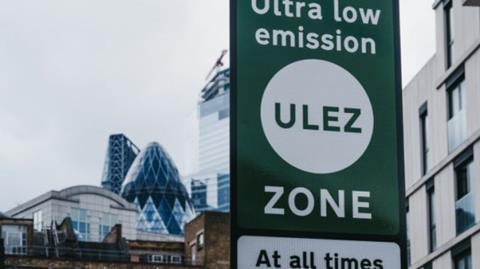
The capital’s Ultra Low Emission Zone (ULEZ) will be expanded to cover all of Greater London in 2023, under plans unveiled by mayor Sadiq Khan.
He also said the long-term and fairest way to solve pollution, carbon emissions and congestion will ultimately be smart road user charging, but he added that Transport for London (TfL) was still “many years away” from implementing such a scheme.
Khan said that given the urgency of the climate crisis and the damaging impact of toxic air pollution, he needed to take further action now.
He said he asked TfL to present him with a range of policy options, including introducing a Greater London boundary charge for vehicles; implementing a low-level daily clean air charge and extending the ULEZ.
Weighing up the science, data and the wider economic context, Khan said extending the ULEZ was the preferred option.
The mayor said: “We simply don’t have time to waste.
Read more
“The climate emergency means we only have a small window of opportunity left to reduce carbon emissions to help save the planet.”
TfL’s director of transport strategy, Christina Calderato, said: “Road-based transport has for many years been a major contributor towards poor air quality and carbon emissions and we are determined to tackle this through a wide range of programmes across TfL.
“The world-leading road user charging schemes we’ve delivered throughout the last two decades have been really effective, but it is clear that as a city we need to go further.”
Capital think tank Centre for London said the ULEZ’s expansion must only be “a short-term stepping stone to a smarter pay per mile road user charging scheme”.
Nick Bowes, Centre for London CE, said: “This will be the truly transformational change that will be able to tackle congestion, promote active travel, clean up the city’s air and provide funding for TfL to invest in public transport.”













![DP World Modal Shift Programme Image[72690]](https://d2cohhpa0jt4tw.cloudfront.net/Pictures/100x67/4/9/7/17497_dpworldmodalshiftprogrammeimage72690_781836.jpg)
